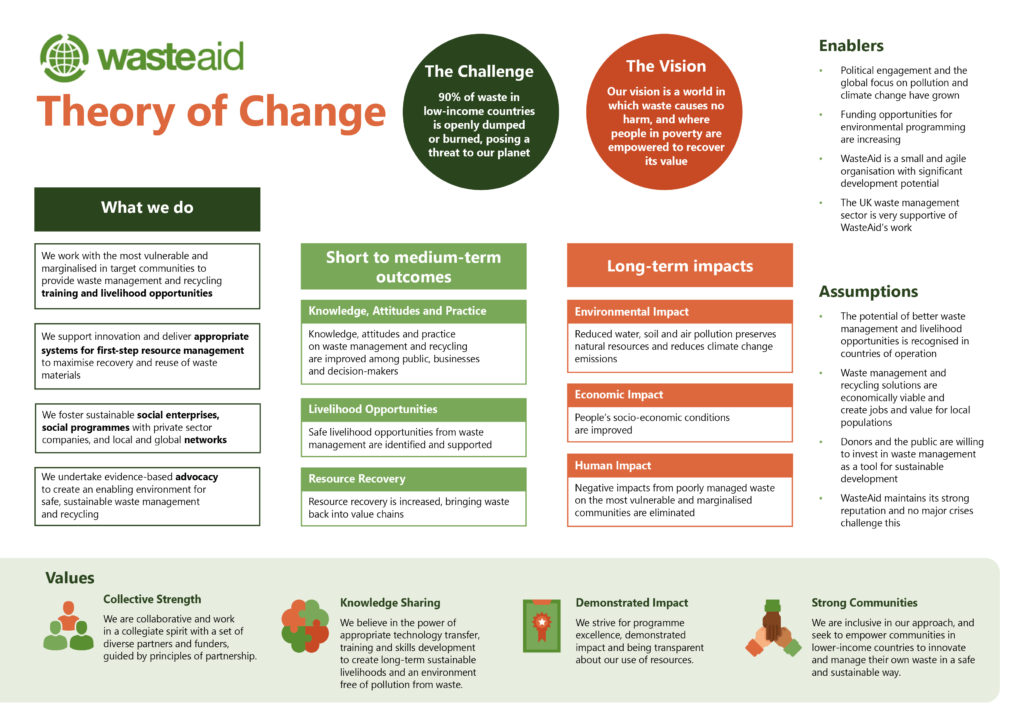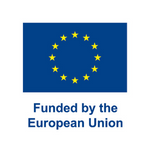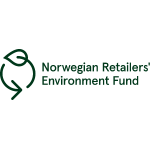Our Approach
WasteAid promotes and shares locally-appropriate, evidence-based and inclusive waste management practices, supporting and empowering others to take positive action.
WasteAid Theory of Change
- We work with the most vulnerable and marginalised in target communities to provide waste management and recycling training and livelihood opportunities.
- We support innovation and deliver appropriate systems for first-step resource management to maximise recovery and reuse of waste materials.
- We foster sustainable social enterprises, social programmes with private sector companies, and local and global networks.
- We undertake evidence-based advocacy to create an enabling environment for safe, sustainable waste management and recycling.
Short to medium-term outcomes
Knowledge, attitudes and practice on waste management and recycling are improved among public, businesses and decision-makers.
Safe livelihood opportunities from waste management are identified and supported.
Resource recovery is increased, bringing waste back into value chains.
Long-term impacts
Environmental Impact: Reduced water, soil and air pollution preserves natural resources and reduces climate change emissions.
Economic Impact: People’s socio-economic conditions are improved.
Human Impact: Negative impacts from poorly managed waste on the most vulnerable and marginalised communities are eliminated.


















